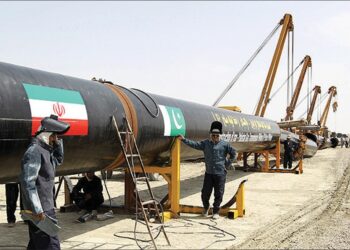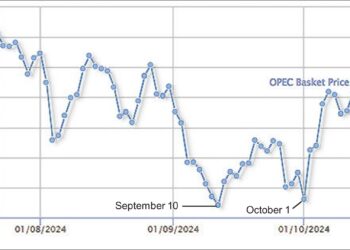A number of analysts suspect Iran may be able to sell a lot of oil but will be unable to ship it to all its buyers. All of Iran’s oil exports are by tanker; none goes by pipeline.
First of all, 95 percent of the world’s oil tankers are insured or re-insured through European insurance firms The European firms were ordered by the EU on January 23 to phase out insurance services for Iranian cargoes.
There are still some possible insurers in Japan and China, but there is no sign yet they want the controversial business with Iran.
Iran, however owns its own fleet of tankers—39 vessels owned by the National Iranian Tanker Corp. (NITC) with a load capacity of 70 million barrels of crude, according to its website. Before this crisis, Iran was exporting 2.5 million barrels a day or 75 million barrels a month. So, NITC would appear to be able to carry almost all of Iran’s crude exports.
But Bloomberg news says many of those tankers must make two-month round trips on delivery runs, so NITC is actually not able to carry anywhere near all of the country’s crude exports.
Dag Kilen, an analyst with a Norwegian firm, told Bloom-berg, “The [Iranian] fleet is not big enough to ship all the oil they are normally exporting. I would expect to see a decline in exports as a consequence of Iran not having a national fleet big enough to export the normal volume.”
Bloomberg said NITC accounted for 37 percent of all the crude loaded up at Kharg, Iran’s chief export terminal, in January. But NITC loaded 56 percent of the crude exported in February and is scheduled for 73 percent of the loadings this month.
Beyond the tankers, total shipments of oil have declined by 300,000 to 400,000 barrels a day because sanctions are preventing Iran from selling oil, Amrita Sen, an analyst at Barclays Capital in London, told Bloomberg last week.
Half of the tankers booked to load at Kharg last month didn’t complete the voyages, according to brokers, company officials and ship-tracking data, Bloomberg reported.
Ship owners are avoiding trade with Iran because of a double whammy—US financial sanctions are blocking payments and the main providers of insurance cover are bowing out of Iran.
The EU ban on the purchase, transportation, financing and insurance of Iranian oil exempts pre-existing contracts until July 1. But it already applies to contracts signed since January 23, so it has already made fewer ships available to carry Iranian crude.
“Iran is finding it increasingly difficult to sell crude, and their production is sliding,” Leo Drollas, chief economist at the London-based Centre for Global Energy Studies, said. “They are suffering, there’s no doubt.”
Twenty-two tankers were booked to call at Kharg in February, according to brokers. Eleven of the ships failed to load cargoes totaling 1.88 million deadweight tons, or about 13.8 million barrels, according to ship-tracking data and company officials.
New York-based Overseas Shipholding Group Inc., Hamilton, Bermuda-based Frontline Ltd. and owners controlling more than 100 supertankers said last month they would stop carrying Iranian oil. Mitsui O.S.K. Lines Ltd. and Nippon Yusen K.K., the world’s two largest owners of the vessels, said they wouldn’t ship the country’s crude without insurance.
The EU embargo affects 95 percent of the world’s tankers because they are insured by the 13 members of the London-based International Group of P&I Clubs, according to Andrew Bardot, its secretary and executive officer. Carrying Iranian oil invalidates ships’ coverage against risks including spills and collisions, he said. Asian insurers are also affected because they buy reinsurance from the International Group.

















